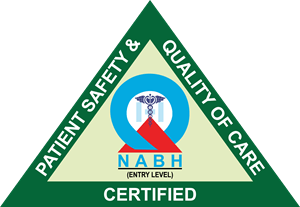High Risk Pregnancy
What Are The Risk Factors For A High-Risk Pregnancy ?
A high-risk pregnancy might pose challenges before, during or after delivery. If you have a high-risk pregnancy, you and your baby might need special monitoring or care throughout your pregnancy. Understand what causes a high-risk pregnancy, and what you can do to take care of yourself and your baby. Sometimes a high-risk pregnancy is the result of a medical condition present before pregnancy. In other cases, a medical condition that develops during pregnancy for either mom or baby causes a pregnancy to become high risk.

What Steps Can I Take To Promote A Healthy Pregnancy ?
Schedule a preconception appointment :- If you're thinking about becoming pregnant, consult your health care provider. He or she might counsel you to start taking a daily prenatal vitamin and reach a healthy weight before you become pregnant. If you have a medical condition, your treatment might need to be adjusted to prepare for pregnancy. Your health care provider might also discuss your risk of having a baby with a genetic condition.
Eat a healthy diet :- During pregnancy, you'll need more folic acid, calcium, iron and other essential nutrients. A daily prenatal vitamin can help fill any gaps. Consult your health care provider if you have special nutrition needs due to a health condition, such as diabetes.
Gain weight wisely :- Gaining the right amount of weight can support your baby's health — and make it easier to shed the extra pounds after delivery. Work with your health care provider to determine what's right for you.
Do I Need Special Tests ?
If you have a high-risk pregnancy, you might consider various tests or procedures in addition to routine prenatal screening tests. Depending on the circumstances, your health care provider might recommend:
Specialized or targeted ultrasound :- This type of fetal ultrasound — an imaging technique that uses high-frequency sound waves to produce images of a baby in the uterus — targets a suspected problem, such as abnormal development.
Amniocentesis :- During this procedure, a sample of the fluid that surrounds and protects a baby during pregnancy (amniotic fluid) is withdrawn from the uterus. Typically done after week 15 of pregnancy, amniocentesis can identify certain genetic conditions, as well as neural tube defects — serious abnormalities of the brain or spinal cord.
Cordocentesis :- This test, also known as percutaneous umbilical blood sampling, is a highly specialized prenatal test in which a fetal blood sample is removed from the umbilical cord. Typically done after week 18 of pregnancy, the test can identify chromosomal conditions, blood disorders and infections.
Clinical Services
Facilities
24 Hours Services



